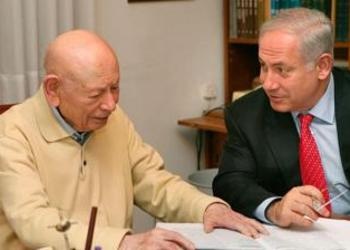The Crucial Human Element in the Current Crisis

Israeli Prime Minister Benjamin Netanyahu descends from a family acutely aware of the past persecutions of Jews. His brother Jonathan died rescuing Israeli hostages from terrorists. His father, Benzion Netanyahu (died at the age of 102 on April 30, 2012), has specialized in studying the Spanish Inquisition. He titled his masterwork The Origins of the Inquisition in Fifteenth Century Spain. In it he "argued that the Inquisition followed a traditional pattern of anti-Semitism: systematic persecution, he has argued throughout his career, is always preceded by campaigns of vilification and dehumanisation meant to ensure the eventual elimination of Jews" (Jeffrey Goldberg, "The Most Dangerous Game," The Spectator, March 10, 2012).
London's chief rabbi, Jonathan Sacks, has remarked on how anti-Semitism, usually directed against individuals in times past, has in more recent years morphed into antipathy toward the state of Israel.
The Israeli prime minister remains painfully aware of his awesome responsibility not just to the nation of Israel but to the global Jewish community. Any military action against Iran would bring profound costs of many types in its wake. Yet the lives of 6 million Jews (not to mention more than a million Israeli Arabs) are also at stake. This was the number of Jews who perished in the Nazi Holocaust.
Benjamin Netanyahu not only assesses the complexities of the current crisis situation with his advisors, but he also remains acutely conscious of Jewish history in general, and that of Israel in particular, founded in 1948. He has written a very good book about the nation of Israel, A Place Among the Nations.
Consider the gift that the prime minister gave to President Obama at the onset of their recent meeting. "It was a copy of the ancient Scroll of Esther which tells the story, now commemorated during the holiday of Purim, of how the Jewish people narrowly escaped annihilation at the hands of a perfidious [treacherous] Persian ruler" (ibid.). Persia is today called Iran. "Netanyahu is many things. Subtle is not one of them" (ibid.).
The apostle Paul exhorted Timothy (and us) to pray for our national leaders (1 Timothy 2:1-2). Do we carry out this sobering responsibility, especially in these times of great international unrest?
